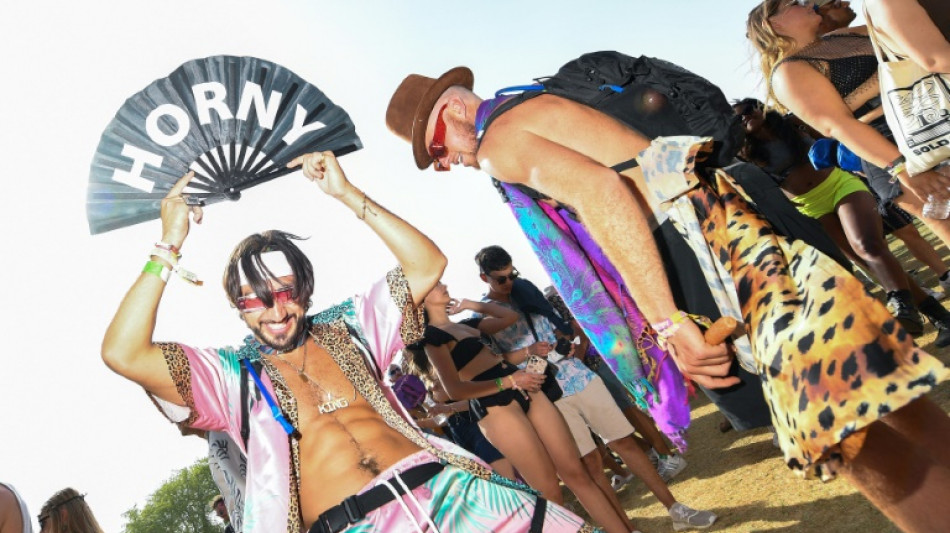
Coachella's return brings big business to California desert

"We've waited years for this!" exclaims Jesus Medina as he dishes out burritos to the hungry masses at Coachella, the music festival that's back on in the California desert after three years.
After a Covid-induced hiatus, Coachella Valley businesses are flourishing with the return of one of music's most-touted events, a boon for the region that counts festivals as key to its economic engine.
With just a little over 90,000 residents, Indio's motto is "The City of Festivals," events that make it at least $3 million in direct revenue alone, according to municipal figures, which includes ticket-sharing dollars and transient occupancy taxes from campers.
The benefit to businesses from liquor stores to hotels to gas stations took that figure soaring even higher -- until the pandemic stymied live performance and put Coachella on indefinite hiatus.
"We had everything ready in 2020, but the pandemic canceled everything," Medina told AFP in Spanish. His business "Cena Vegana" sold more than a thousand burritos on Friday, during Coachella's opening day.
"It doesn't stop, the lines are endless -- this is a great opportunity for us."
Coachella draws in more than 125,000 people daily over the course of two three-day weekends.
Thousands of people occupy hotels in neighboring areas including Palm Springs, the resort area bordered by the San Jacinto mountains and known for its palm trees, golf courses and spas.
Business has been "quiet for years, a couple years, but we're full and it's busy," said Char Pershind, manager of the Zoso Hotel.
Nearly all of the 162 rooms at Zoso are booked by people attending and working at the festival, and virtually everything is sold out for the event's second weekend.
In 2019, the last time Coachella attendees descended on the valley, Pershind worked at a different hotel, and says this year many more people are in town for the shows.
"People have been cooped up for so long... they want to get out and enjoy the air," she said.
"I know they come for the music -- but they come for a lot more."
- 'Reminder I was here' -
For Mitchell Car, who works at a bustling vintage clothing and accessories shop, Coachella is a golden opportunity to expand sales.
"Lots of times people come and they don't have their outfits," Car told AFP.
This year, the festival's giving 1970s vibes with bell-bottom silhouettes of yore, along with bursts of neon and glitter adding sheen to the Empire Polo Club grounds where the stages spring up each year.
"They're always searching: what's hip? What's unique?" said Car, whose primary clientele come from New York, San Francisco and Los Angeles. "I had the photographer for Harry Styles in the store the other day."
Food choices abound on the festival grounds, where Santiago Restrepo is dishing up traditional Venezuelan arepas to hungry concert-goers.
"At first it was a bit difficult for us, because it's the first time we've used this sales model," he told AFP. "But when people started arriving in the middle of the afternoon we were ready."
"After 4:00 pm, we didn't stop for a second until 1:00 am."
A few feet away, Coachella partiers are lined up to snag souvenirs celebrating the festival's return.
In the official store, it took people an hour-and-a-half to reach the front of the line where some 20 people doled out merch, the most expensive item ringing up at $150 for a 2022 sweatshirt.
"Some people spent thousands of dollars," said one vendor who wished to remain anonymous.
Charlie Dawson, who flew in from New York, told AFP he just wants "something, whatever -- a reminder I was here."
It's his seventh Coachella: "I was looking forward to coming back."
B.Cretella--PV
